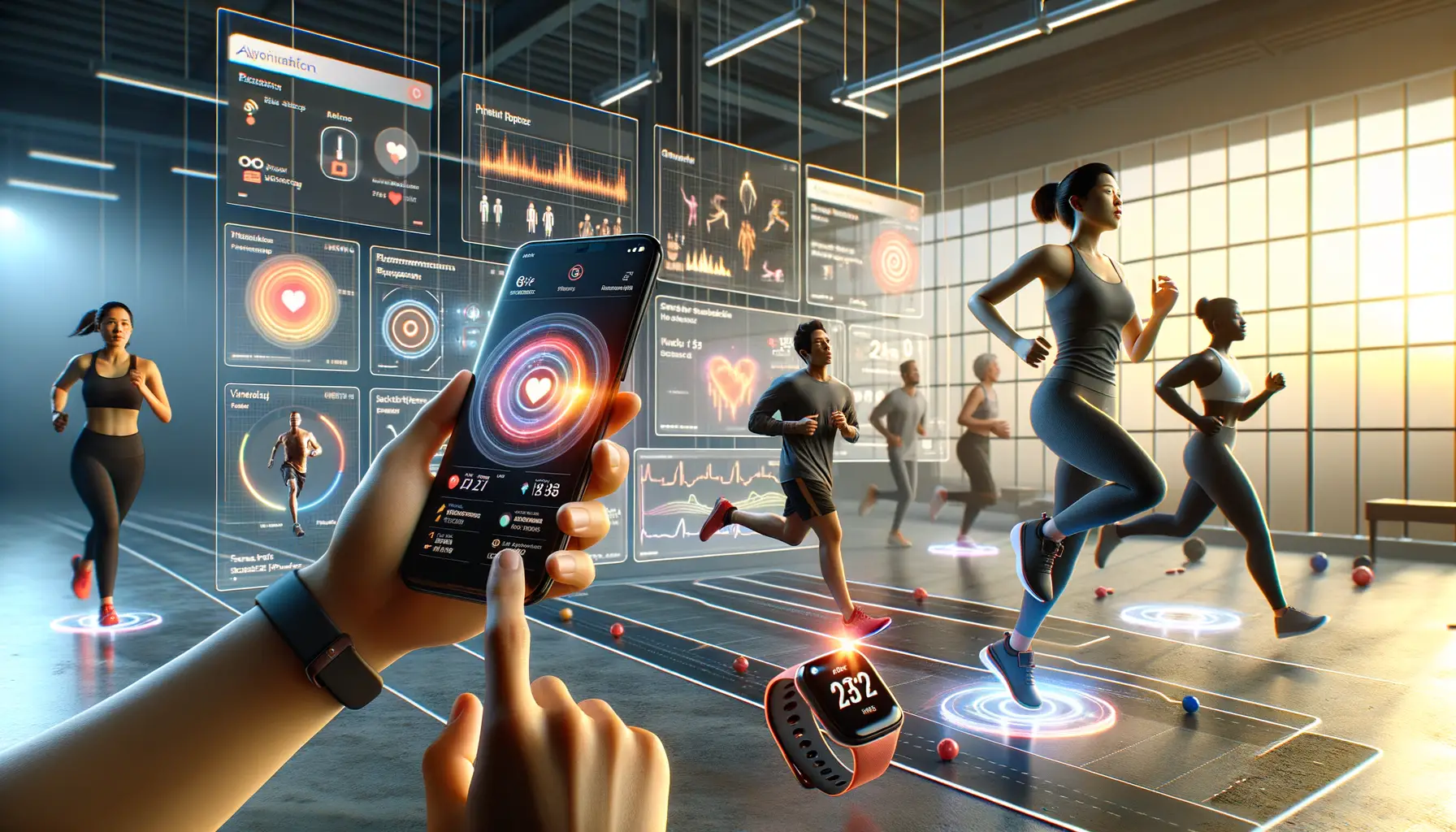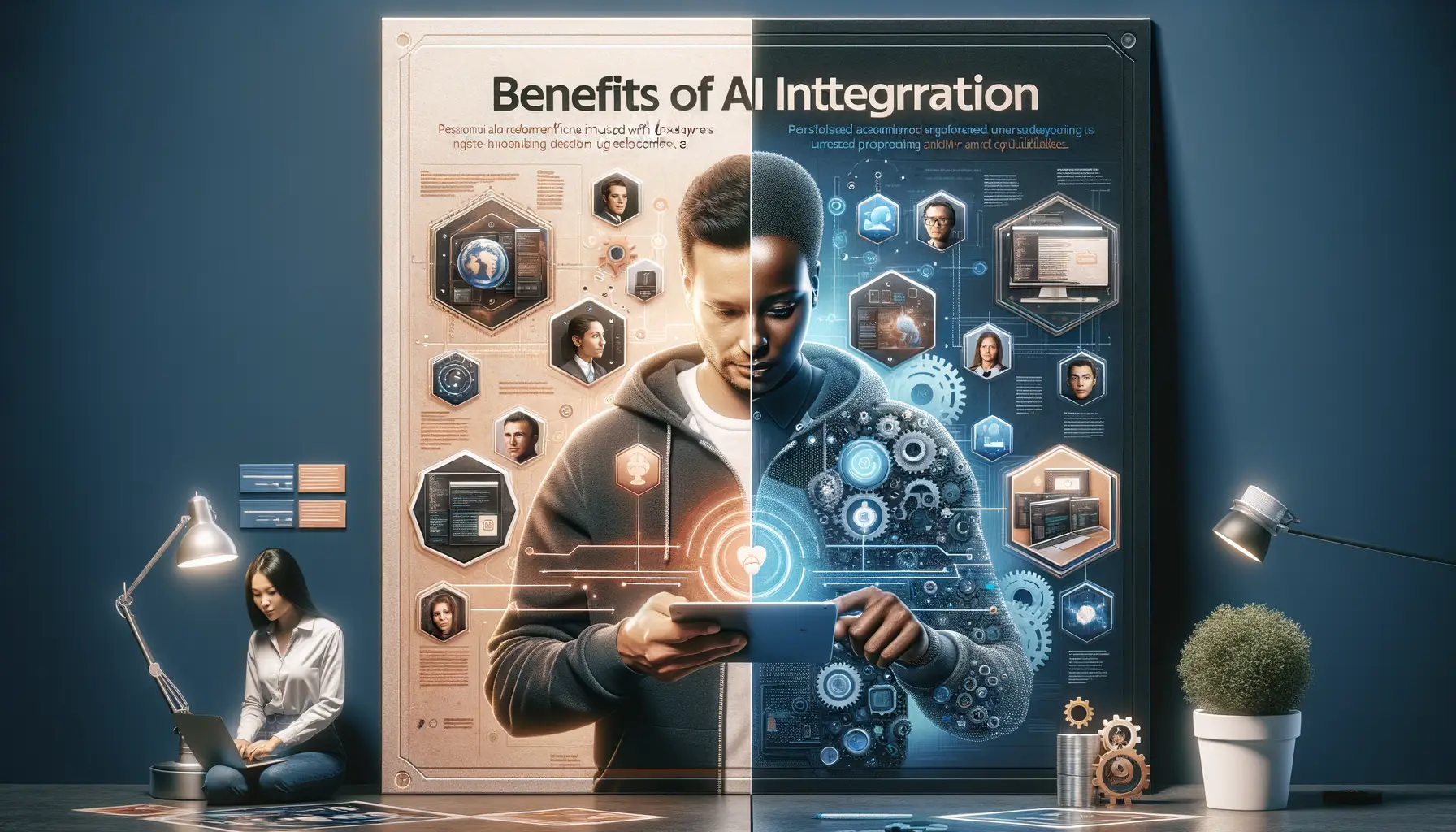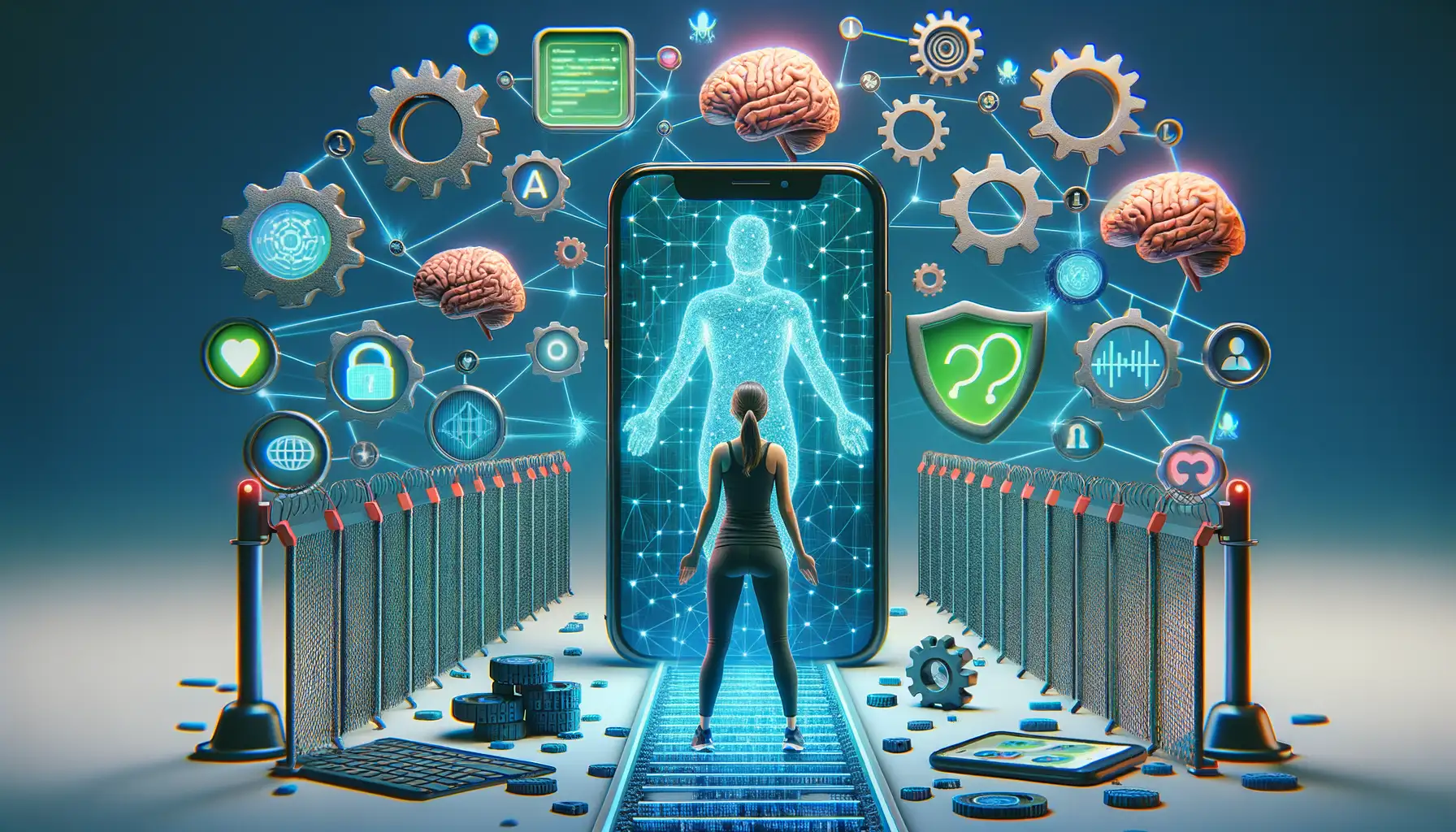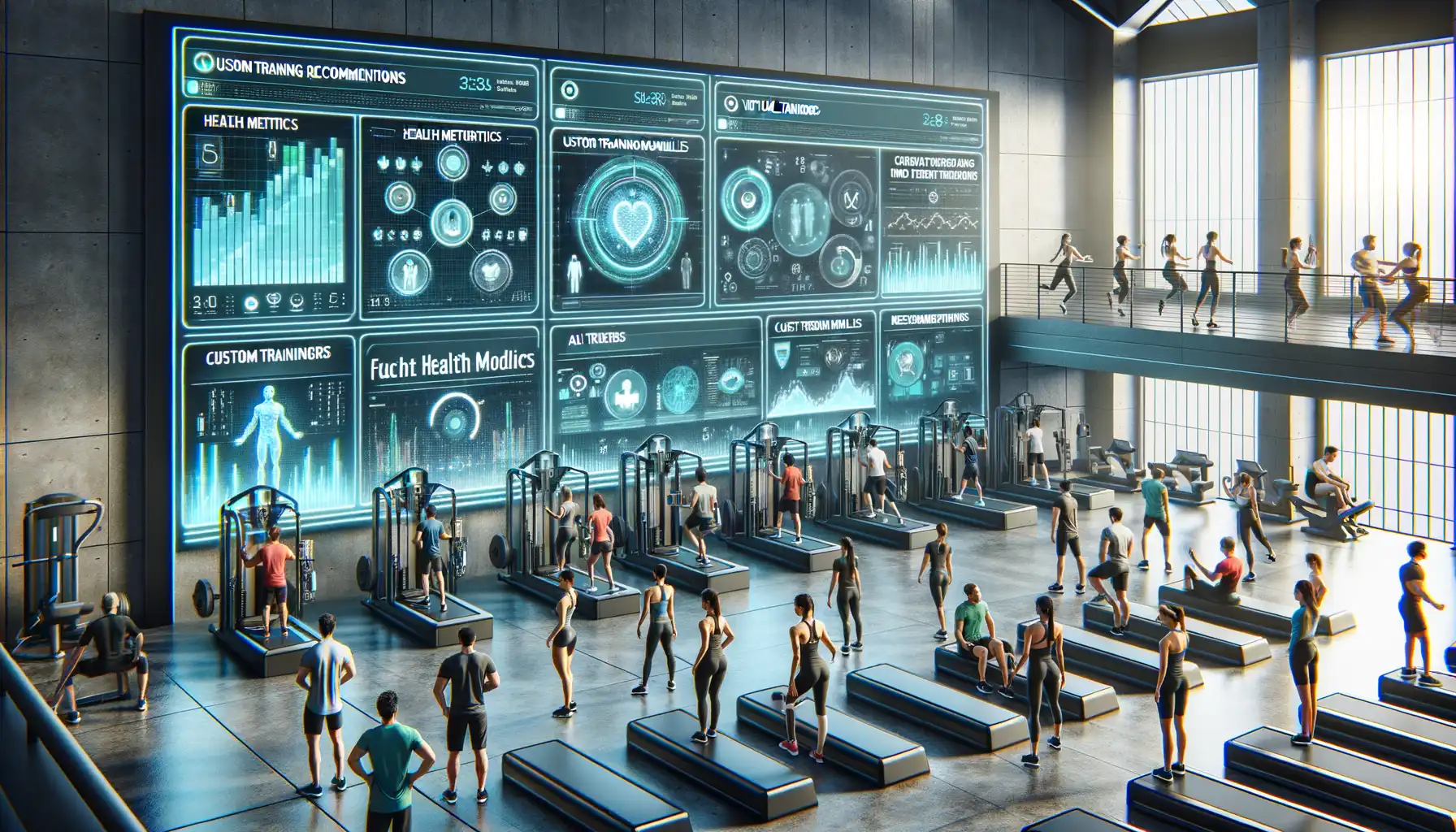Overview of AI in the Fitness App Industry
How AI is Taking Fitness Apps to the Next Level
Look around your phone—fitness apps are everywhere. But today’s fitness apps aren’t just counting steps or timing your planks with a dull stopwatch. Thanks to the magic of Artificial Intelligence (AI), these apps are evolving into personal trainers, nutrition gurus, and even virtual cheerleaders. It’s like having a fitness coach in your pocket who knows *exactly* what you need, when you need it.
Here’s where it gets exciting: AI brings personalization to fitness in ways humans simply can’t match at this scale. Your app isn’t just tracking calories; it’s studying patterns unique to *you*. Burned more calories on last week’s run route? Your app notices and adjusts your plan. Didn’t sleep well? An AI might suggest yoga instead of HIIT. This is fitness tuned to your rhythm, not the other way around.
- Computer vision: Analyze your form during workouts through your camera.
- Predictive capability: Forecast progress based on past data to keep you motivated.
- Natural language processing (NLP): Chatbots that actually understand your wellness questions!
AI isn’t a gimmick—it’s the engine driving apps towards smarter, faster, and more effective results. Welcome to the future of working out.
Key Applications of AI in Fitness Apps

AI-Powered Personal Training: Your Gym Buddy in Your Pocket
Imagine having a coach who knows you better than you know yourself—a fitness whisperer, if you will. That’s exactly what AI brings to the table. Through advanced algorithms and real-time data analysis, fitness apps use AI-driven personalization to create workout plans tailored to your stamina, goals, and even how much sleep you got last night.
With features like virtual trainers powered by computer vision, apps can analyze your form during exercises, correcting mistakes like rounded shoulders during planks or unsteady knees during squats. It’s like having an eagle-eyed coach, minus the judgmental stares! Plus, these apps adjust as you progress—your workouts evolve dynamically, making hitting plateaus a thing of the past.
Wellness Beyond Workouts: Smarter Insights for Healthier Lives
Fitness is more than reps and runs—it’s about the whole package: sleep, nutrition, and mental well-being. Here’s where AI truly shines:
- Track your heart rate patterns and detect signs of overtraining or stress.
- Offer meal suggestions based on your macros, grocery preferences, and even allergies.
- Analyze sleep cycles to recommend better rest schedules—because recovery is king!
These apps don’t just nudge you toward your goals—they transform into your proactive health ally, capable of spotting trends you might miss. It’s science fiction turned reality, right in your hands.
Benefits of AI Integration for Users and Developers

Why Users Fall in Love with AI-Powered Fitness Apps
Imagine having a personal trainer in your pocket, one who gets to know you better than you know yourself. That’s the magic of AI integration. For users, it’s like stepping into a fitness experience tailored just for them—no cookie-cutter routines here.
AI in fitness apps provides customized workouts based on your goals, fitness level, and even how much time you can spare today. Feeling sore after leg day? The app knows and adjusts tomorrow’s plan. And let’s talk about nutrition—AI doesn’t just count your calories; it suggests meals you might actually enjoy while meeting your macros.
Here’s where it gets even cooler. With features like real-time progress tracking, AI celebrates *every squat, jump, and stretch* alongside you. There’s nothing more motivating than seeing your achievements displayed boldly on the screen. Suddenly, sticking to a fitness routine feels less like a chore and more like an adventure.
- Smart reminders help users stay consistent without nagging.
- Instant feedback on form or performance keeps workouts effective.
- Workout boredom vanishes with ever-evolving, fresh challenges.
The Secret Sauce for Developers: Effortlessly Building User-Centric Apps
On the developer side, integrating AI is like giving your toolkit a turbo boost. Instead of crafting static features, developers can create dynamic experiences fueled by machine learning. The result? Apps that feel alive, reactive, and deeply personalized.
AI handles the heavy lifting when analyzing user behavior, enabling developers to fine-tune interfaces and build features users actually want. And let’s not overlook the game-changer: predictive analytics. With it, developers can anticipate trends, forecast usage spikes, and design updates well before competitors catch wind.
Plus, AI dramatically simplifies complex tasks. Generating customized recommendations, seamlessly analyzing workout data, and personalizing notifications once required endless time. Now? Just plug in the right AI model, and let it run. It’s efficiency with a side of brilliance.
For developers, integrating AI is less about following trends and more about empowering their vision—and who doesn’t want that?
Challenges of Implementing AI in Fitness Apps

Breaking Through the Barriers
Ah, the promise of AI in fitness apps—like having a personal trainer who never sleeps, always adapts, and knows your body better than you do! But let’s be real. Implementing this brilliant technology isn’t all smooth treadmills and perfectly timed HIIT sessions. Behind the polished interface lies a maze of challenges, and trust me, they’re not for the faint of heart.
For starters, think about data. Fitness apps thrive on information: heart rate, steps, calories, even how well you sleep. But gathering and using this intimate health data responsibly? That’s a tightrope walk. Developers face intense scrutiny to ensure user privacy and comply with regulations like GDPR—a task more exhausting than a marathon.
Then, there’s the problem of accuracy. AI can be smart, but it isn’t clairvoyant. Different users have wildly different fitness goals and body types. Teaching an algorithm to provide personalized workouts for a newbie vs. a triathlete? Imagine trying to cater a wedding with no idea about the dietary restrictions.
- Cost: Building AI features is pricey, often leaving smaller developers gasping for financial air.
- Adaptability: Human bodies are unpredictable, and today’s algorithm might struggle to adjust to tomorrow’s trends.
So yes, AI has its hurdles—but overcoming them just might redefine how we move, sweat, and thrive.
Future Trends and Opportunities in AI-Driven Fitness Apps

Personalized Training Like Never Before
Imagine a fitness app that feels like it truly “gets” you—your quirks, your pace, your preferences. The future of AI in fitness is personal, tailored, and dare I say, eerily intuitive. With the rise of machine learning algorithms, apps are on the brink of delivering hyper-customized workout plans based on your DNA, sleep patterns, and even daily mood fluctuations. Yes, your app could soon notice you had a bad night’s sleep and suggest a restorative yoga flow instead of your planned HIIT session. That’s not just tech; that’s having a best friend who also happens to be a fitness genius.
We’re also looking at the advent of adaptive wearable integrations. Think sweat sensors that analyze hydration levels mid-run or smart shoes that adjust cushioning as you sprint uphill. Coupled with AI, this combination could revolutionize not only how we move but how we recover and refuel.
- Real-time feedback that evolves during your workout
- Nutrition recommendations synced with biometric data
- Even virtual coaches who learn your personality
The possibilities are as boundless as they are exciting—and it’s all within reach. Wouldn’t you want to be part of this high-tech fitness evolution?
A Community Revolution Powered by AI
Here’s a plot twist: the future isn’t just about what happens on your screen—it’s about connection. AI-driven fitness apps are poised to create stronger communities with features like social accountability networks. Imagine signing up for a virtual marathon where AI matches you with runners at your skill level, keeping the competition motivating yet fair. Or an app that nudges your friends when you hit a milestone. It’s like having a digital cheer squad!
Even gamification is getting a serious upgrade. Think virtual reality runs through futuristic worlds, where every step unlocks hidden treasures calibrated by AI to match your pace. And let’s not forget global cultural integration—soon, your fitness app might offer tai chi lessons with a live instructor in Shanghai, translated and optimized for your local time zone. The future isn’t just smart—it’s spectacularly human. Are you ready to lace up and leap in?
